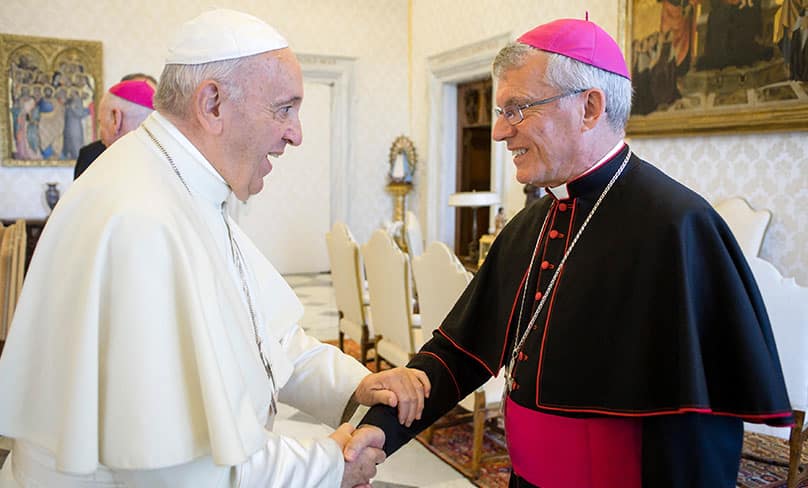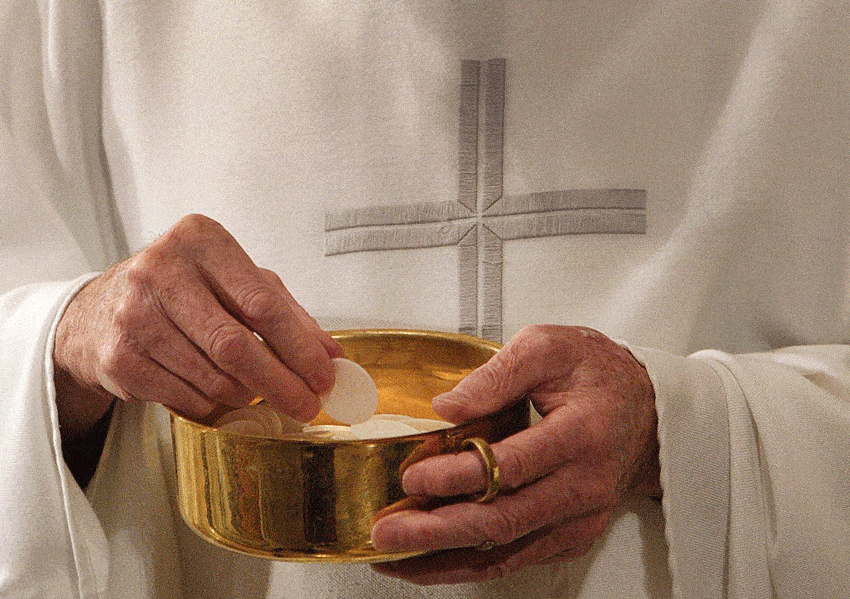
The link between ordination and governance is up for “re-evaluation”, the president of the Australian Catholic Bishops Conference, Archbishop Timothy Costelloe SDB has said.
Speaking to Geraldine Doogue on the Plenary Matters podcast on 13 November, Archbishop Costelloe said Pope Francis had begun to open up new possibilities for Church governance by appointing lay people to key positions in Vatican dicasteries once held by priests.
“What are priests and bishops and deacons for, in the Church? They‘re not set apart from the Church, or over the Church or aside from the Church,” Archbishop Costelloe said.
“But what are they for in the Church? Now part of the answer to that has always been partly governance.
“I wonder whether we’ve misunderstood the notion of power in a Christian sense, and are unconsciously (perhaps consciously) imposing a different concept of power … and just presuming that’s what it should be in the Church.”
“That’s a theological issue that’s now being opened up, not necessarily to change, but to re-evaluation. To see whether there are other dimensions to that we haven’t seen.”
Archbishop Costelloe said that linking governance with power risks the presumption that governance in the church mirrors that of secular society.
“I wonder whether we’ve misunderstood the notion of power in a Christian sense, and are unconsciously (perhaps consciously) imposing a different concept of power, a concept of power that operates in the political sphere or corporate world, and just presuming that’s what it should be in the Church,” he said.
During the wide-ranging discussion on the achievements of the Plenary Council and synodal processes, Mrs Doogue said the “constant journeying” since Vatican II has been demanding.
“And a lot of people resist that, they want much more stability. Which I have a lot of sympathy for – at the moment, does it seem just all over the place to a lot of people?” she asked.

“It may do. I can understand why some people are so unsettled by all of this,” Archbishop Costelloe replied.
“Sometimes things that people thought might have been rock solid, at least we’re now saying, ‘We need to hear from people how they feel about these things.’ That can unsettle some people.”
Mrs Doogue also interviewed Bishop Shane Mackinlay of Sandhurst, who drove much of the Plenary Council process.
He will also participate in the Synod on Synodality over the next two years.
“People across the room were saying, ‘We cannot go back to the Church in Australia from here, like this.’ The stakes were very high.”
Speaking about the Second Assembly’s Wednesday protest, sparked by the failure of the deliberative vote on the motions concerning women, Bishop Mackinlay said it was the work of the Holy Spirit.
“We were looking into the abyss. People across the room were saying, ‘We cannot go back to the Church in Australia from here, like this.’ The stakes were very high,” he said.
Archbishop Costelloe and Bishop Mackinlay joined Plenary Matters during the ACBC’s November session in Sydney, during which the Acts and Decrees of the Plenary Council were to be approved and sent to Rome for review.
Archbishop Costelloe said he foresaw no difficulties and that the Church could begin implementing the “broad thrust” and vision of the Plenary Council while waiting for Rome’s response, anticipated in the first half of 2023.
